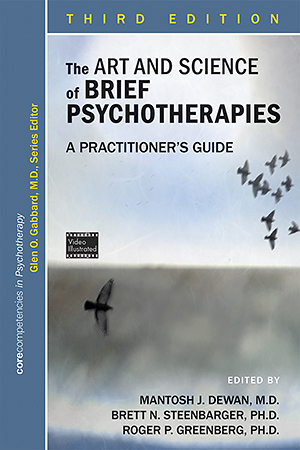Sections
Excerpt
Brief therapies have been proven to be effective in a variety of disorders, including the most common ones: depression, anxiety disorders, obsessive-compulsive disorder (OCD), and posttraumatic stress disorder (PTSD). For many patients and conditions (e.g., OCD, PTSD, minor to moderate depression), brief therapies are the treatment of choice (Dewan and Pies 2001; Gabbard 2014; Hales et al. 2014). However, can we help even more patients by adding medications to brief therapy?
Access content
To read the fulltext, please use one of the options below to sign in or purchase access.- Personal login
- Institutional Login
- Sign in via OpenAthens
- Register for access
-
Please login/register if you wish to pair your device and check access availability.
Not a subscriber?
PsychiatryOnline subscription options offer access to the DSM-5 library, books, journals, CME, and patient resources. This all-in-one virtual library provides psychiatrists and mental health professionals with key resources for diagnosis, treatment, research, and professional development.
Need more help? PsychiatryOnline Customer Service may be reached by emailing [email protected] or by calling 800-368-5777 (in the U.S.) or 703-907-7322 (outside the U.S.).



